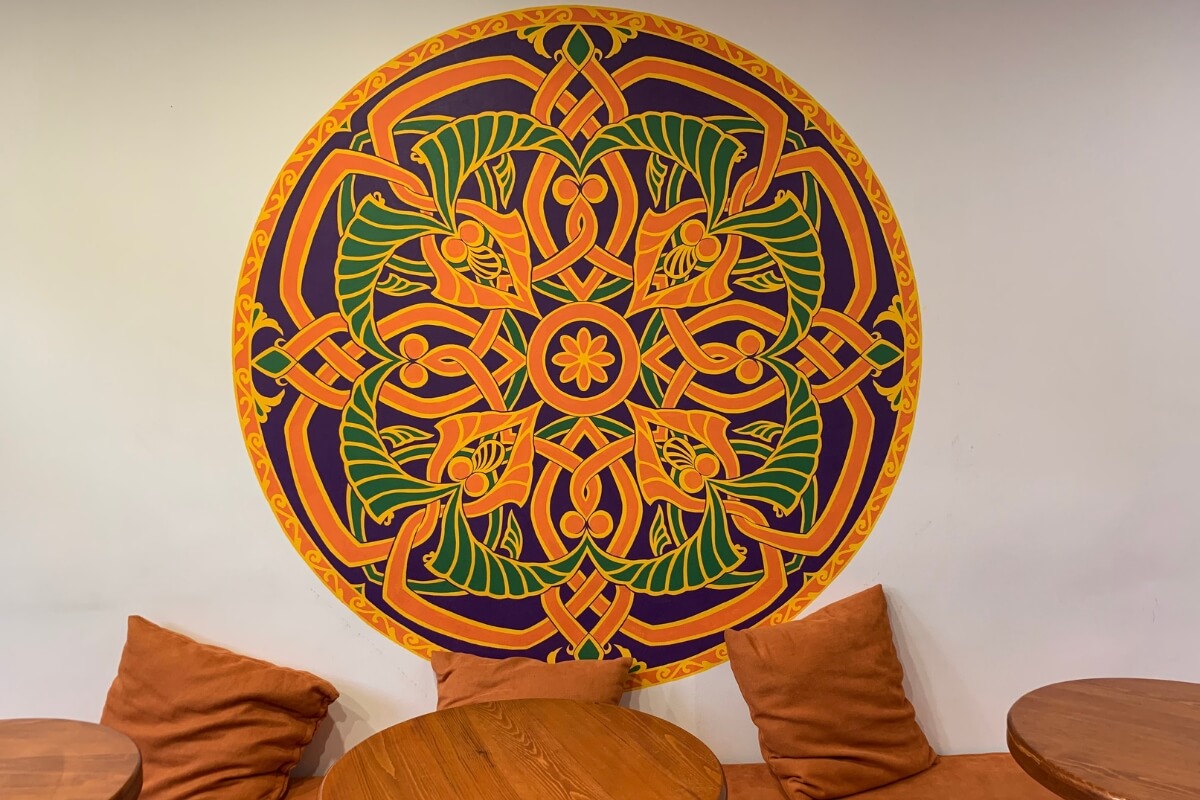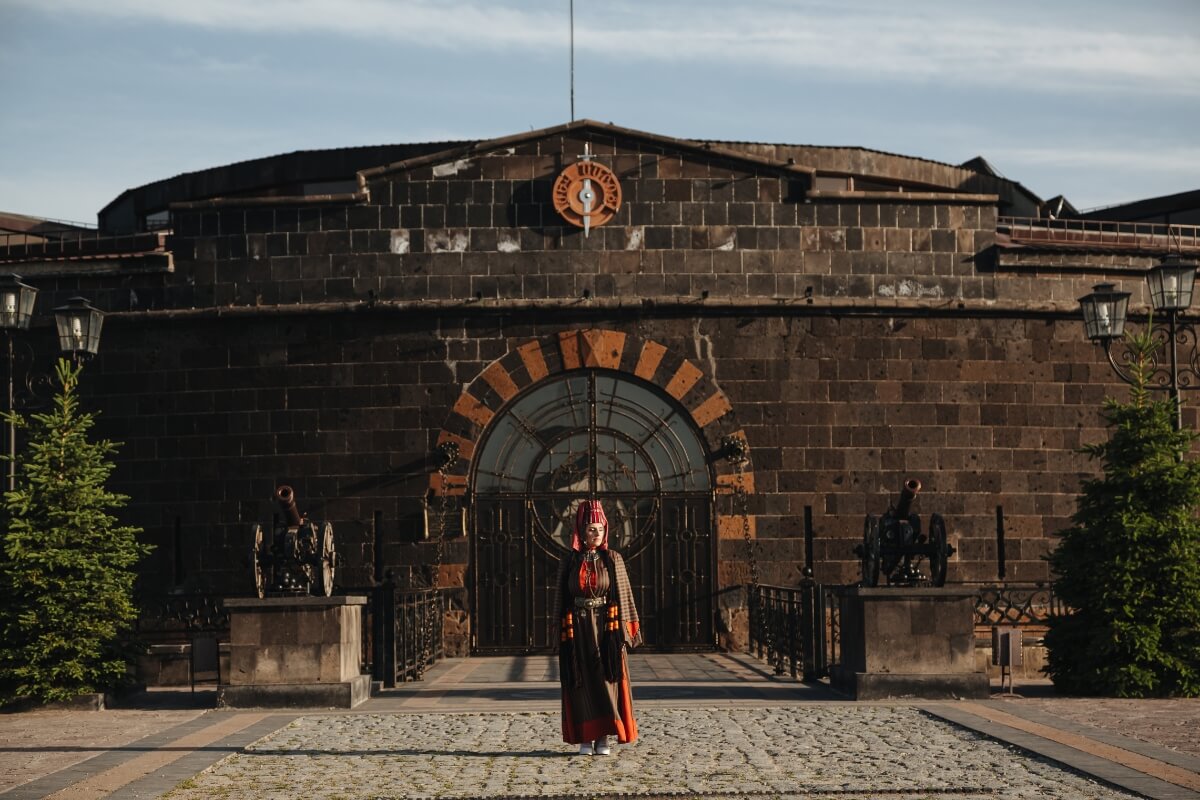My Impact
24.06.2024
6 min read
Repat Story
Sowing good seeds: the story of Zaruhi Karapetyan and café “Nazuk”
-webp(85)-o(jpg).webp?token=b31b4c7a7628ada468c936c213b6e555)
Moving and volunteering
In recent years, Gyumri has taken the direction of progress: the architectural appearance of the city, both national and gastronomic, has changed, and innovations have appeared in the city’s infrastructure. Repatriates, often the ones with Gyumri roots, made a big contribution to all this.
Zaruhi Karapetyan is one of those who is trying to bring something new to the gastronomic culture of Gyumri. She was born in Gyumri, half a year after the earthquake. Her family overcame that difficult time, but when Zaruhi was three, they decided to move to Russia to earn money. She spent her childhood and youth in Moscow.
“In the last years before returning home (moved in 2018), I came often and felt that emotionally and physically I was more comfortable here, and I wanted to stay in this state of comfort. And since I am very sociable, it was sad to be left without communication and friends, so I volunteered at Birthright Armenia. I had the desire to open a café in Gyumri, I wanted to learn how it works from the inside, so I volunteered in local cafes for almost two months, got acquainted with this area, and took courses on this topic”, - says Zaruhi, sitting in her café “Nazuk”, in the center of Gyumri.
“In the last years before returning home (moved in 2018), I came often and felt that emotionally and physically I was more comfortable here, and I wanted to stay in this state of comfort. And since I am very sociable, it was sad to be left without communication and friends, so I volunteered at Birthright Armenia. I had the desire to open a café in Gyumri, I wanted to learn how it works from the inside, so I volunteered in local cafes for almost two months, got acquainted with this area, and took courses on this topic”, - says Zaruhi, sitting in her café “Nazuk”, in the center of Gyumri.
“Nazuk” – is a café-confectionary with interesting dishes that are new not only for locals. The café recently moved to larger premises in the city center. Of course, along with new opportunities the café also faces new challenges: competitors have been operating for a long time, premises rental costs more, and there are more employees.
Opening of the café, the beginning of the war
“Due to the slowness of different services, we opened later than we planned: the premises were rented in May 2020, when there was already Covid, but we opened on September 12, two weeks before the war. That day I made a decision: if we close now, we close forever. I was responsible to people, I hired them. The war, of course, had a very strong impact on work. When people from Artsakh began to arrive, we went to the city administration to find out if anyone needed a job. Women responded: they made zhengyalov hats and Artsakh baklava. We advertised especially Artsakh products, and then many people learned about us. We worked like this until November 9”, - Zaruhi said.
After November 9 life in Gyumri froze: there was no one on the streets. It was April when visitors returned to the café. Reflecting on how “Nazuk” managed to survive during a period when small businesses were failing, Zaruhi admitted that she spent the funds she was saving for advertising, but they still went negative every month. A lot of money and effort were invested, and they had to survive. At the same time, there was no reduction in the number of workers: Zara continued to pay them full-time, but they, too, eventually became her support.

Today “Nazuk” is one of the warmest places in the heart of Gyumri: it has a very friendly atmosphere, which both the owner and employees are only happy to share. A community of relocants also gathered at “Nazuk” looking for something similar to what they had lost: the dishes they were used to, the quality of service, and friendly communication.
Difficulties and personal growth
Zaruhi admits that it is very difficult to work with the local population who have not yet accepted that a café is not just a place where you can eat and leave, but also a place where you can relax and socialize. The café’s unique cuisine is excellent, but it compromises with the gastronomic habits of the locals, and that is what attracts visitors.
Speaking about the difficulties that Zaruhi encountered in work and communication, she admits that the slowness of government bodies, which constantly need to be reminded of the work, is frustrating. For this reason, the café opened four months later than planned. She remembers the manner of communication with these bodies: on the one hand, helping, on the other hand, hindering. So, for example, if you make a mistake out of ignorance, you can expect a lenient attitude, but this attitude is often used by those who allow themselves to purposefully avoid the laws.
“The people of Gyumri have a very complex character, there is a lot of attention to public opinion, and your every move is discussed. It is important not to focus on it and to move forward. It allowed me to grow. When I opened the café, I started collaborating with Birthright Armenia, so that volunteers would come to us. I did this, among other things, for my employees and the locals so that they would communicate in a different environment with a different view so that they could see not only their attitude towards Gyumri but also adopt something new”, - says Zara.
She talks about the developments she went through as a person: upon arrival, there was some degree of rose-colored glasses, but in the end, she understood the realities, she understood that the most difficult thing is not to adopt something, not to change, but to coexist competently together, because she will not change and will not try to make rules for others. The only thing she can do is to show them how else they can live.
To be an example and to sow seeds
“In the old place, in winter there were snowdrifts near our café, it was necessary to be cleaned, so I did it myself, without hiring workers. Neighbors came out saying “Why are you doing this?”. This went on for about two weeks, and two weeks later they followed suit. I did not say anything, but I was happy inside. I did not shame them, it turns out that I motivated them.

I moved here with the question: what can I give to Armenia? Everyone who comes has to understand: if everyone comes and takes a little bit, then there will be nothing left. If everyone invests a little, we will get a full sea of opportunities and Armenia we want to see. If you sow seeds, then seeds will grow, but if you sow bad seeds, then the harvest will be bad. This is what I came here with”, - Zaruhi concludes smiling.
By Nare Bejanyan
-
Repat Story
-webp(85)-o(jpg).webp?token=be2e2e1cd8ed9e2310c410e3244b92c3) 31.01.20257 min readThe Repatriate Behind Armenia's First and Only Triathlon Club
31.01.20257 min readThe Repatriate Behind Armenia's First and Only Triathlon Club -
Repat Story
-webp(85)-o(jpg).webp?token=99b4e91bb8cc1967465c3f6b761a71cc) 26.08.20248 min readThe Revival of Sailing in Armenia: The Story of Artashes Dadyan
26.08.20248 min readThe Revival of Sailing in Armenia: The Story of Artashes Dadyan

-webp(85)-o(jpg).webp?token=a916bd5793380ff08f870863f3dcaa32)
-webp(85)-o(jpg).webp?token=36be019b5372dc162cce9687b13d187a)